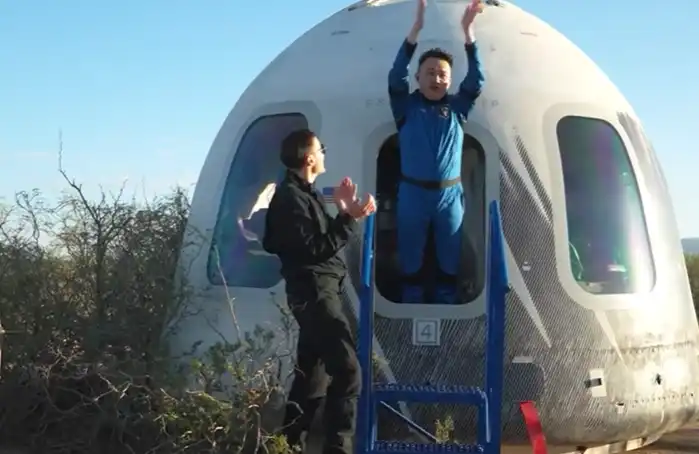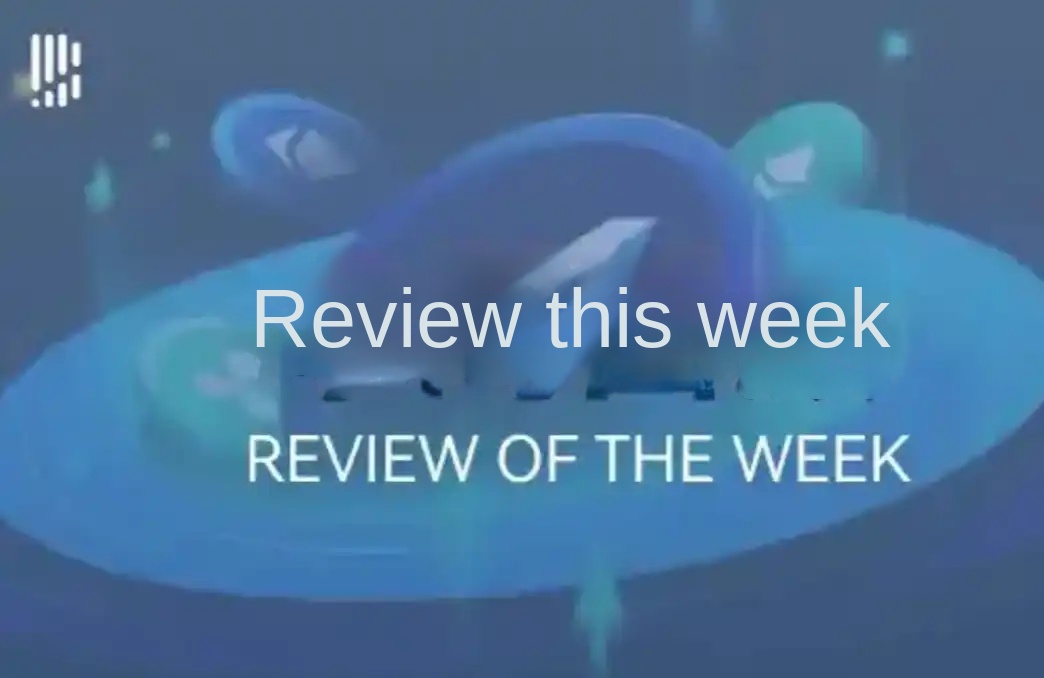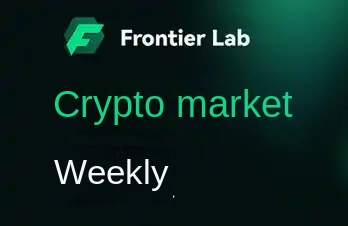The Winklevoss Brothers' Two Bets: Facebook and Bitcoin
Original Title: The Winklevoss Brothers: Two Decisions That Changed Everything
Original Author: Thejaswini M A, TOKEN DISPATCH
Original Translation: Block unicorn
Foreword
The mediator had just announced the settlement terms for Facebook: $65 million. The room fell silent. Mark Zuckerberg's lawyers awaited a response.
Most people would take the money and run. Tyler Winklevoss looked at his brother Cameron Winklevoss, then glanced across the table.
"We choose stock."
The lawyers may have exchanged a glance. Facebook was still a private company, the stock could be worthless, the company could fail. Cash was real, stock was a gamble.
But Tyler's response defined their next decade. They put their entire settlement bet on a company that had creatively plagiarized them.
When Facebook went public in 2012, their $45 million stock was worth close to $500 million.
The Winklevoss brothers pulled off one of the boldest moves in Silicon Valley history. They lost the battle for Facebook but made more money from it than most early employees.
In 2013, they seized the opportunity once again and found a new venture.
The Birth of Mirrors
Before becoming crypto billionaires or Facebook litigants, Cameron and Tyler Winklevoss were mirrors of each other, literally.
On August 21, 1981, they were born in Greenwich, Connecticut, as identical twins with one key difference: Cameron is left-handed, Tyler is right-handed. Perfect symmetry.
They grew tall, excelled in athletics, and complemented each other seamlessly. At 13, they self-taught HTML and built websites for local businesses. In their teenage years, they founded their first web company, creating websites for any paying clients.
At the Greenwich Country Day School and later at the Brunswick School, they discovered the sport of rowing and together founded the school's rowing program.
In an eight-person shell, timing is critical. Fall behind by a fraction of a second, and you lose. Perfect coordination requires understanding your teammates, reading the water, and making split-second decisions under pressure.
They became so excellent. Excellent enough to row at Harvard, excellent enough to compete in the Olympics.
But what rowing taught them was far more valuable than athletic glory—an art form of perfect timing and seamless collaboration.
The Harvard Dorm Room
In the year 2000, the Winklevoss twins entered Harvard University, majoring in Economics, with dreams of Olympic participation.
Cameron joined the men's varsity crew, the Porcellian Club, and the Hasty Pudding Club. The brothers poured themselves into rowing with intense dedication, a focus that eventually led them to the international stage.
In 2004, they helped the Harvard University team, known as "The God Squad," achieve a perfect collegiate rowing season. They won the Eastern Sprints, the Intercollegiate Rowing Association Championship, and the legendary Harvard-Yale Regatta.
But a significant discovery happened off the water's surface.
In December 2002, during their junior year, the twins, while studying the social dynamics of elite college life, conceived HarvardConnection, later renamed ConnectU.
Their idea was to create an exclusive social network for college students, starting at Harvard and expanding to other elite universities. They deeply understood the needs of their generation: students wanted to connect digitally, but existing tools were clunky and homogeneous.
There was just one problem: they were athletes and economics majors, not programmers.
They needed help, they needed a savvy individual, someone who could grasp their vision.
That's when Mark Zuckerberg appeared.
In October 2003, at the Kirkland House at Harvard University.
The twins presented their social network idea to Mark Zuckerberg. A sophomore computer science student who was reportedly working on a project called Facemash, where students could rate each other's photos.
Perfect.
They outlined the vision of HarvardConnection to Zuckerberg. He listened attentively, nodded in acknowledgment, inquired about features and technical details, and seemed very interested. They then scheduled a follow-up meeting.
For several weeks, everything progressed smoothly. Zuckerberg engaged in discussing ideas, exploring implementation details, and showed commitment to the project. The twins thought they had found their programmer.
January 11, 2004. While the twins were waiting for their next meeting with Zuckerberg, he registered a domain name: thefacebook.com. Four days later, instead of meeting with them, he launched Facebook.
The twins read this news in The Harvard Crimson and realized that their programmer had turned into a competitor. They realized they had been played.
Legal Battle
In 2004, ConnectU sued Facebook, alleging that Zuckerberg had stolen their idea, violated an oral agreement, and built a competing platform based on their concept.
What followed was a four-year legal battle. The legal team kept growing, and the case became a sensational event. But this lawsuit allowed the twins to observe closely one of the most significant technological revolutions in human history.
During the legal battle, they witnessed Facebook sweeping through college campuses, then expanding to high schools, and eventually opening up to everyone. The platform they had envisioned was conquering the world, just under someone else's name.
They studied Facebook's user growth, analyzed its business model, observed its network effects. By the time they reached a settlement in 2008, their understanding of Facebook was almost unparalleled compared to anyone outside the company.
But their biggest competition occurred in the courtroom, not on the surface.
The twins' decision to take Facebook stock instead of cash in the 2008 settlement proved to be visionary. When Facebook went public in 2012, their $45 million stock was worth close to $500 million. They proved that the "Winklevii" could win the war even if they lost a battle.
Their athletic careers ran parallel to the legal drama. In the 2007 Pan American Games in Rio, Cameron won gold in the men's eight, and silver in the men's coxless four. The following year, the two brothers competed in the Beijing Olympics, finishing sixth in the men's coxless pair, establishing themselves among the world's elite rowers.

The Bitcoin Revelation
After their massive return from Facebook, the Winklevoss twins tried to become Silicon Valley angel investors. However, every startup they approached turned them down. Why? Mark Zuckerberg would never acquire a company associated with the Winklevoss brothers. Their money became "poison".
Devastated, they escaped to Ibiza. One night, in a club, a stranger named David Azar approached them holding a dollar bill, saying, "A revolution."
David stood on the beach and explained Bitcoin to them. Bitcoin was a completely decentralized digital currency with a total supply of only 21 million. The twin brothers had never heard of it. In 2012, almost no one owned Bitcoin.
As Harvard graduates in Economics, they saw the potential of Bitcoin: digital gold, possessing all the properties that historically gave gold value, but superior.
In 2013, while Wall Street was still figuring out what cryptocurrency was, the Winklevoss brothers had already started investing heavily.
They invested $11 million when the price of Bitcoin was $100. This was equivalent to about 1% of the circulating supply at the time, roughly 100,000 coins.
Think about it, they were Olympic athletes, Harvard graduates, young people with unlimited possibilities, yet they bet millions on a digital currency that most saw as associated with drug dealers and anarchists.
Their friends must have thought they were crazy.
But they had witnessed a dorm room idea turn into a company worth hundreds of billions. They understood how the impossible could quickly become inevitable.
Their analysis was this: if Bitcoin became a new form of money, early adopters would see massive returns; if it failed, they could afford the loss.
When Bitcoin reached $20,000 in 2017, their $11 million had turned into over $1 billion. They became among the world's first confirmed Bitcoin billionaires.
This pattern is becoming clearer. Cameron Winklevoss and Tyler Winklevoss had a unique vision.
Building Infrastructure
The twins didn't just buy Bitcoin and wait for it to appreciate; they began building the infrastructure to drive mass adoption.
Winklevoss Capital provides seed funding for building the new digital economy: exchanges (such as BitInstant), blockchain infrastructure, custody tools, analytics platforms, and later DeFi and NFT projects. Their investment portfolio covers everything from protocol developers (such as Protocol Labs and Filecoin) to cryptocurrency mining energy infrastructure.
In 2013, they submitted the first Bitcoin ETF application to the U.S. Securities and Exchange Commission (SEC). This was an almost certain-to-fail attempt, but someone had to take the first step. In March 2017, the SEC rejected their application citing market manipulation. They tried again and were rejected in July 2018. However, their efforts in regulation paved the way for other applicants. In January 2024, a spot Bitcoin ETF was finally approved, marking the fruition of the framework the twin brothers had started building over a decade earlier.
In 2014, BitInstant CEO Charlie Shrem was arrested at an airport for money laundering related to Silk Road transactions, leading to the forced shutdown of BitInstant. Major Bitcoin exchange Mt. Gox was hacked, losing 800,000 bitcoins. The infrastructure the twins had invested in was crumbling, and the Bitcoin market was in turmoil.
But they saw an opportunity in the chaos. The Bitcoin ecosystem needed legitimate, regulated companies.
In 2014, they founded Gemini, one of the first regulated cryptocurrency exchanges in the U.S. While other crypto platforms operated in legal gray areas, Gemini worked with New York state regulators to establish a clear compliance framework.
They understood that for cryptocurrency to go mainstream, it needed institutional-grade infrastructure. The New York State Department of Financial Services granted Gemini a limited purpose trust charter, making it one of the first licensed Bitcoin exchanges in the U.S.
By 2021, Gemini was valued at $7.1 billion, with the twins holding at least 75% of the shares. Today, the exchange holds over $100 billion in total assets and supports trading for over 80 cryptocurrencies.
Through Winklevoss Capital, they have invested in 23 cryptocurrency projects, including participating in Filecoin's 2017 fundraising round and Protocol Labs.
The Winklevoss brothers did not resist regulatory agencies; instead, they worked to educate them. They did not seek regulatory arbitrage but integrated compliance into their products from the outset.
The challenges faced by Gemini include reaching a $2.18 billion settlement in 2024 regarding its Earn program. However, the exchange survived and continues to operate.
The Winklevoss twins understand that success cannot be achieved solely through technology; the acceptance of regulation will determine the fate of cryptocurrency.
In 2024, they each donated $1 million in Bitcoin to Donald Trump's presidential campaign, positioning themselves as advocates for cryptocurrency-friendly policies. Their donations exceeded the federal contribution limit, requiring some to be returned, but they have stated their position.
The twin brothers have been outspoken critics of the SEC's enforcement under Chairman Gary Gensler. Their regulatory battles have involved both personal lives and professional development. The SEC's lawsuit against Gemini directly challenged their business model. In June 2025, Gemini secretly submitted an IPO.
Current Performance
Forbes currently values the brothers at $4.4 billion, with their net worth totaling around $9 billion, with Bitcoin assets being the largest part of their wealth.
Their cryptocurrency assets include approximately 70,000 Bitcoins worth $4.48 billion, as well as significant holdings in Ethereum, Filecoin, and other digital assets.
Gemini remains one of the most trusted cryptocurrency exchanges globally, with institutional-grade security features and regulatory compliance. The exchange's IPO application marks a significant step towards integration into mainstream financial markets.
In February 2025, the twins became partial owners of Real Bedford Football Club, an English Tier 8 league team, with a $4.5 million investment.
Collaborating with cryptocurrency podcaster Peter McCormack, they are attempting to propel this semi-professional team to the English Premier League. Their father, Howard, also donated $4 million in Bitcoin to Grove City College in 2024, marking the school's first Bitcoin donation, aimed at funding the newly established Winklevoss School of Business.
The twin brothers personally donated $10 million to Greenwich Country Day School, marking the largest alumni donation in the school's history.
They have publicly stated that even if the value of Bitcoin reaches that of gold, they will not sell Bitcoin, demonstrating their belief that Bitcoin is not just a store of value but a fundamental reshaping of currency.
The Harvard Crimson revealed Mark Zuckerberg's betrayal, and a one-dollar bill ignited a revolution on the beach of Ibiza - these two moments occurred, respectively, before and after they learned to see what others did not. Cameron Winklevoss and Tyler Winklevoss have long been thought to have missed the party. As it turns out, they were just early to the next feast.
Welcome to join the official BlockBeats community:
Telegram Subscription Group: https://t.me/theblockbeats
Telegram Discussion Group: https://t.me/BlockBeats_App
Official Twitter Account: https://twitter.com/BlockBeatsAsia
 Forum
Forum OPRR
OPRR Finance
Finance
 Specials
Specials
 On-chain Eco
On-chain Eco
 Entry
Entry
 Podcasts
Podcasts
 Activities
Activities







